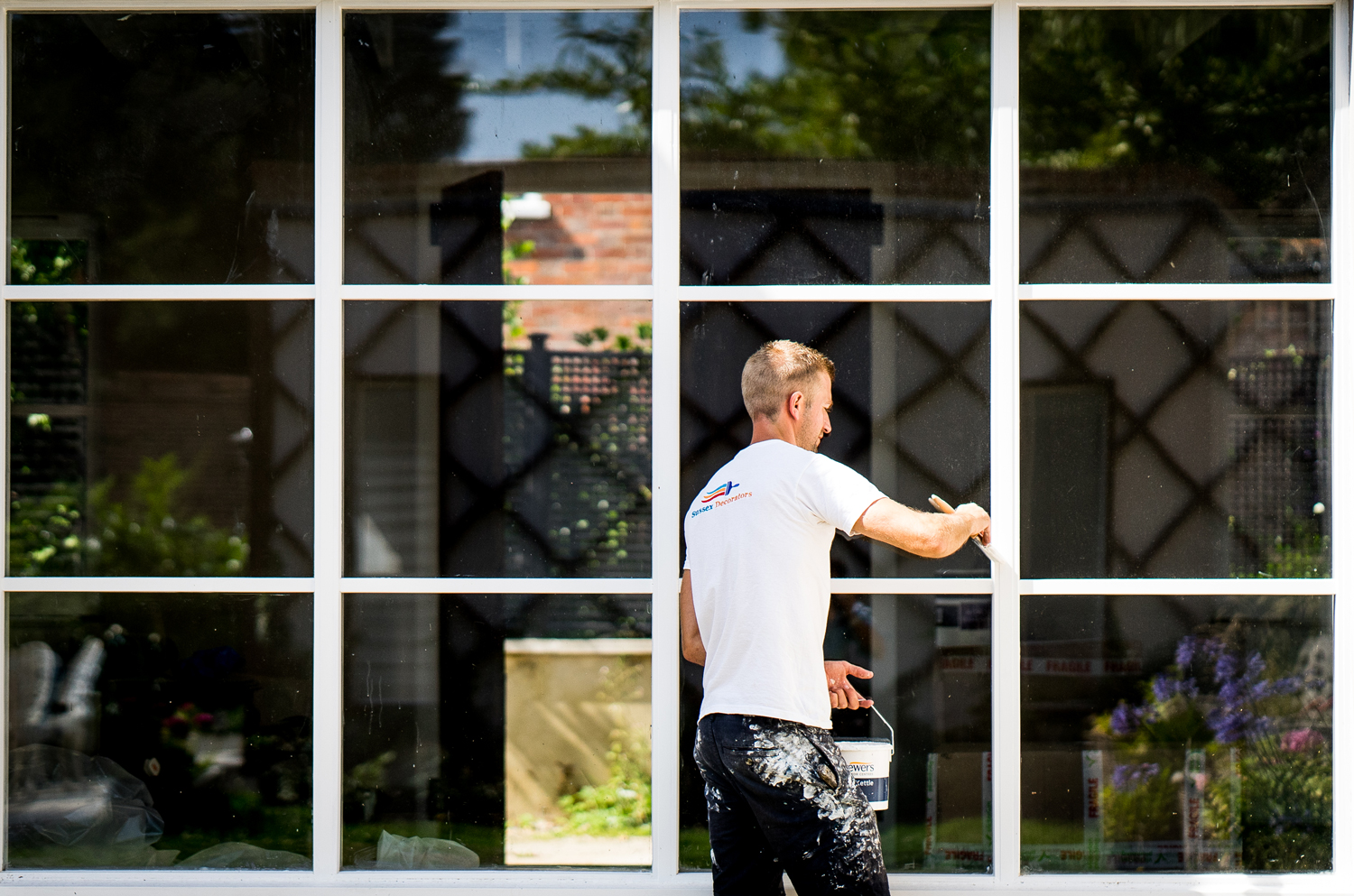How to become a painter & decorator
Reading time: 3 minutes
你是一个巧手画笔?你有a good eye for detail? You have to be meticulous with your preparation to master this trade, so if you’re patient and precise, then you might just be in the right place...
Painting and decorating is sometimes seen as a less skilled trade than some others, but make no mistake, if you are a specialist and have built up your expertise, it’s one of the most highly skilled trades going.
While you’re not dealing with complex systems like household wiring or gas supply, your work will be highly visible and open to scrutiny. Even if you stick with the basics, painting and decorating demands a methodical approach and an eye for perfection.
Good painters and decorators are always in demand. With huge plans for house building in the UK over the next few years, and growing interest in home renovations, that demand is likely to increase.

A day in the life of a painter and decorator
Painting and decorating involves the complete preparation of surfaces ready for painting. This can include stripping old wallpaper, filling holes and cracks, and ensuring a level surface. You may also be responsible for mixing paints and applying specialist finishings such as glazes or marbling and there can be a lot of creativity involved depending on the customer’s design preferences.
This also means at times you may have to work up ladders and on scaffolding to prepare and paint large walls and ceilings, so you’ll need to be comfortable with working at heights, especially if you’re working outdoors.
通常由doi装修工作ng one room or a couple of rooms at a time, so you can be on a site anywhere from two to six days at a time on average, working methodically to achieve a perfect finish. You will often be the last person on site after major renovation works, adding a little more pressure to get it exactly right.
As a self-employed painter and decorator with a growing customer base, you can be in control of the tools and paints you use and the types of jobs you take on, this is when you’ll be able to work on a wide range of painting jobs to satisfy your creative flair.

Painter and decorating training and experience
There are a few different options available for training and experience. If you have no experience you can take acollege course, usually a Level 2 or 3 diploma. This will equip you with some of the skills that are required to work for a decorating company and here you will be able to build more on the job experience.
Anapprenticeshipis a more traditional route into the trade, where you will learn over the course of three years under the supervision of an experienced painter and decorator. This is a route that will give you knowledge of specialist techniques and trade tips that a shorter course may not be able to provide.
There areshorter coursesavailable, at a cost, and these may benefit people with DIY experience in painting and decorating and want to turn it into a career, or those who want to get stuck in straight away but can’t afford to spend several years studying or earning an apprentice’s salary. Courses can range from two days to five weeks and cost between £400 and £2,000.

Painting and decorating salaries
The average salary for an employed painter and decorator in their first year is aroundt £15,000 rising to £30,000 with experience.
The average day rate of a self-employed painter in the UK is around £120 to £160, and up to £200 in London - and specialists could earn even more. Of course, ultimately your rate will depend on the type of job and if any specialist skills are required.




